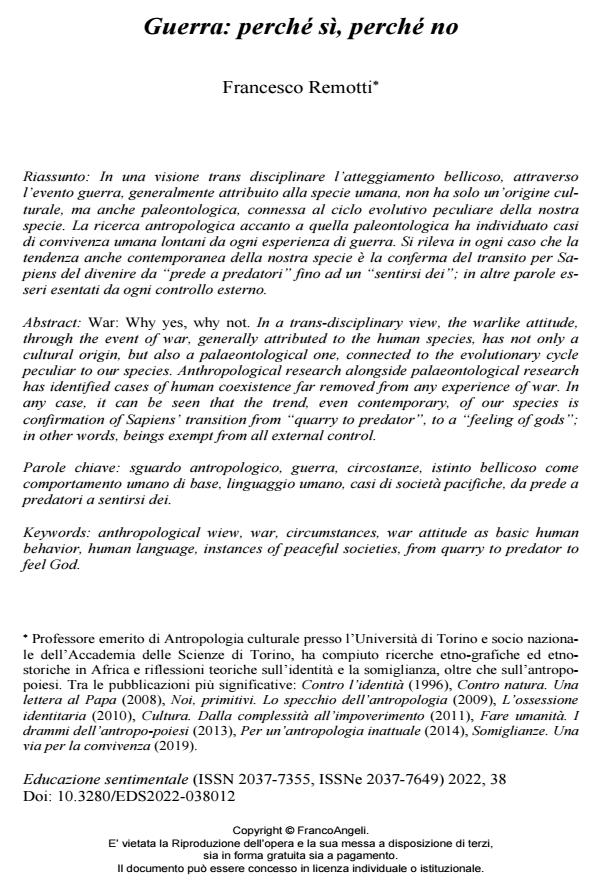Guerra: perché sì, perché no
Journal title EDUCAZIONE SENTIMENTALE
Author/s Francesco Remotti
Publishing Year 2023 Issue 2022/38
Language Italian Pages 9 P. 108-116 File size 223 KB
DOI 10.3280/EDS2022-038012
DOI is like a bar code for intellectual property: to have more infomation
click here
Below, you can see the article first page
If you want to buy this article in PDF format, you can do it, following the instructions to buy download credits

FrancoAngeli is member of Publishers International Linking Association, Inc (PILA), a not-for-profit association which run the CrossRef service enabling links to and from online scholarly content.
War: Why yes, why not. In a trans-disciplinary view, the warlike attitude, through the event of war, generally attributed to the human species, has not only a cultural origin, but also a palaeontological one, connected to the evolutionary cycle peculiar to our species. Anthropological research alongside palaeontological research has identified cases of human coexistence far removed from any experience of war. In any case, it can be seen that the trend, even contemporary, of our species is confirmation of Sapiens’ transition from “quarry to predator”, to a “feeling of gods”; in other words, beings exempt from all external control.
Keywords: anthropological wiew, war, circumstances, war attitude as basic human behavior, human language, instances of peaceful societies, from quarry to predator to feel God.
Francesco Remotti, Guerra: perché sì, perché no in "EDUCAZIONE SENTIMENTALE" 38/2022, pp 108-116, DOI: 10.3280/EDS2022-038012